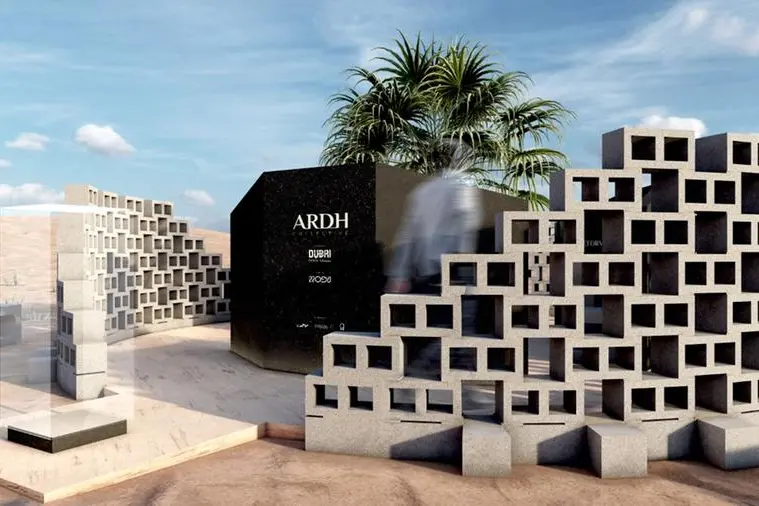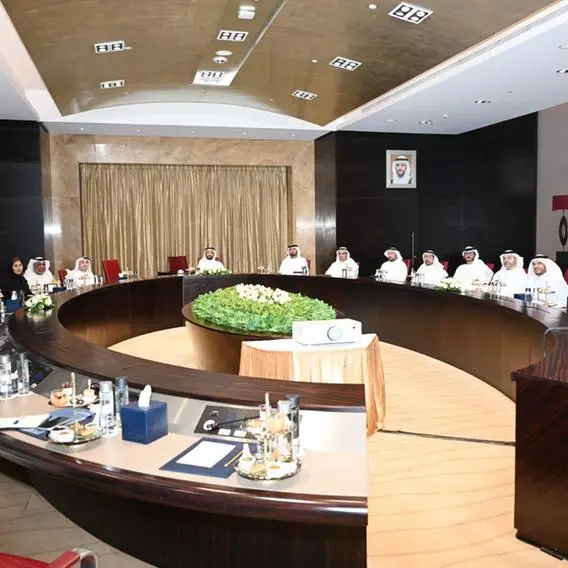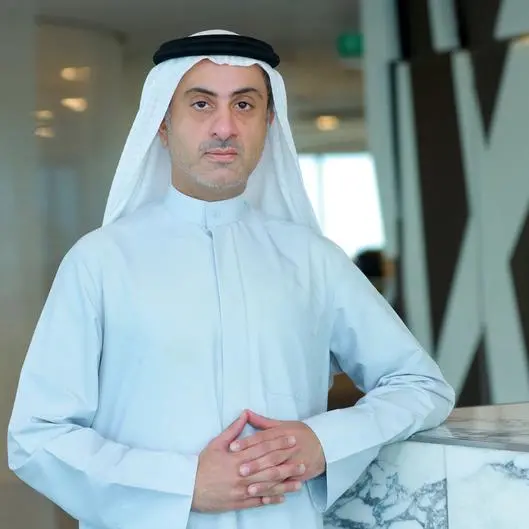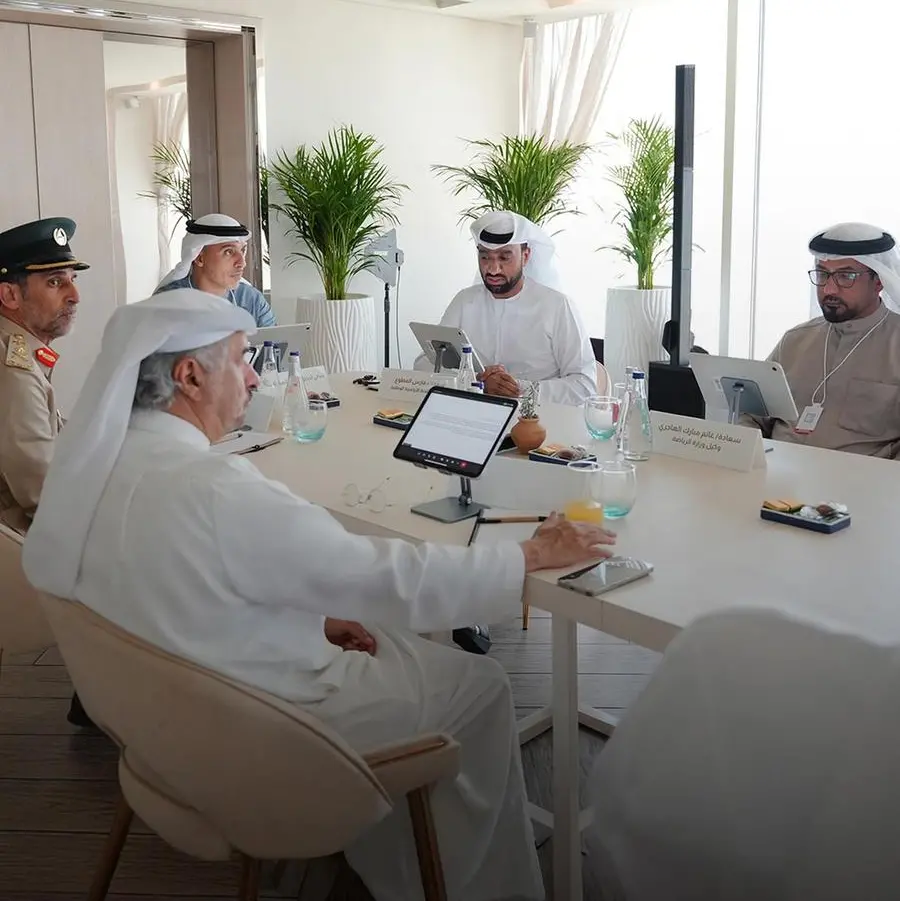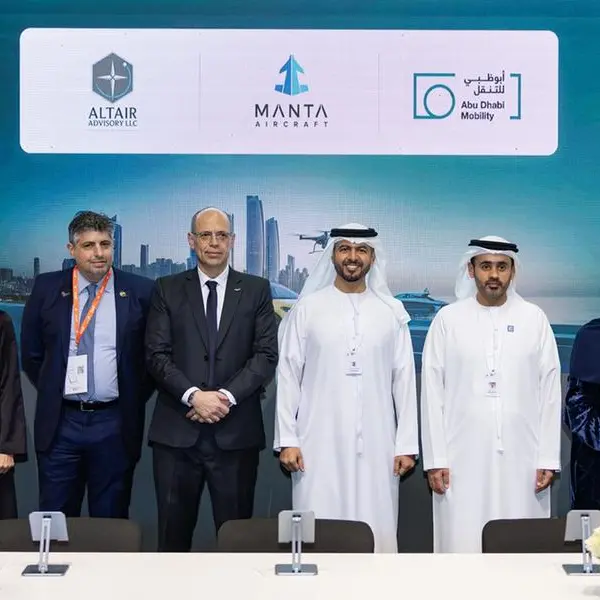PHOTO
Dubai: Dubai Culture & Arts Authority (Dubai Culture), the custodian of the emirate’s art, culture and heritage, will be presenting a commissioned sustainability installation at November’s Dubai Design Week in Dubai Design District. ‘From the Dunes & Trees’ is a creation of ARDH Collective, a UAE-based initiative that celebrates the Emirati history of innovative building techniques. The installation envisions the future of building and creation in the region through their sustainable and future-forward materials.
The ARDH Collective is a sustainable material solutions company focused on using waste resources native to the MENA region. ‘From the Dunes & Trees’ presents the next generation of materials that will be accelerating regional sustainable development. The installation is sponsored by Dubai Culture and features a collaboration between ARDH Collective and MODU Method. 'From the Dunes & Trees' will be located at the North Terrace and the Architecture Exhibition during this year's edition of Dubai Design Week. The installation is designed to be deconstructed and re-utilized by the ARDH Collective and Dubai Culture for future events post Dubai Design Week.
Khulood Khoory, Director of the Projects & Events Department at Dubai Culture, stated “Innovation, sustainable material development and environmental heritage are all important to us at Dubai Culture. We hope the installation will encourage the use of more sustainable materials in our industry as well as inspire more creative explorations of sustainability in the future. What we see from ARDH Collective is in line with Dubai Culture’s commitment to supporting a stimulating infrastructure for the cultural and creative industries, enabling a thriving ecosystem that supports Dubai as an incubator for creativity and talent hub for the eyes of the international community.”
Dubai Design Week, held in strategic partnership with Dubai Design District (d3), is the region’s largest creative festival, reflecting Dubai’s position as the design capital of the Middle East. This year it will run from 8 – 13 November. Held under the dedicated patronage of HH Sheikha Latifa bint Mohammed bin Rashid Al Maktoum, Chairperson of Dubai Culture & Arts Authority (Dubai Culture), Dubai Design Week is a platform for regional design as well as a catalyst for the growth of the creative community in Dubai. It is one of the region’s most important cultural events and each year its varied programme that takes place in d3 includes the UAE's leading design fair, exhibitions, installations, competitions, talks and workshops across multiple creative disciplines.
“Dubai Design Week is a platform to showcase design talent and innovation. The Ardh Collective is exactly that. The collective has developed an industrial process that brings innovation to building materials, using common natural waste and showcased it as a respite from the hustle and bustle of Design Week. The team and I are both impressed and proud to showcase them along some of the world’s most renowned names in architecture and design. Dubai truly fosters these opportunities and creates moments to highlight how bright the future is through nurturing locally based talent,” said Kate Barry, Director at Dubai Design Week.
The installation is the formal launch of DATEFORM, RAMEL and NEAR, the three flagship materials by ARDH Collective. These materials utilize discarded date-seeds, plant based fibers and desert sand in multiple industries, such as bespoke products, interior design, architecture and construction. The form of the installation is inspired by the circular life cycle of the material solutions on offer by ARDH Collective. The design of the pavilion also celebrates the trio of materials by incorporating a play on threes. The coming together of three materials, the three arcs that enclose the space and the three walkways that lead into the pavilion. The installation also features a collaboration between ARDH Collective and MODU Method for the launch of a sustainably produced variation of the MODU Nu stools, which can be configured in a variety of ways.
“It's great to take part in making, even a marginal, difference in today's world; it's also exciting to see new materials be introduced to the industry in a manner that is sustainable and better for the environment. Through collaborations such as this one (ARDH Collective and MODU method) we really get to test how far these materials can go, and hopefully provide a new source for inspiration when it comes to design and construction,” stated Omar Al Gurg, Creative Director & Founder at MODU Method.
Every year, over 108 million kilograms of date seeds are discarded in the UAE. Made in the Emirates, DATEFORM turns waste into value by diverting date seeds from landfills and instead enriching our spaces with fascinating materials. DATEFORM's flagship material 'It's Roasted' is composed of roasted and pulverised date seeds. The solid surface materials can be used to create countertops, flooring/tiling systems, wall cladding, shelving units, furniture, products and more.
RAMEL is a concrete composite that replaces traditional riverbed sand with locally sourced desert sand and partially replaces cement with similar binders resulting in a more environmentally friendly material. The concrete industry is responsible for 8% of the world’s carbon emissions due to the process involved in cement production. Furthermore, riverbed sand, one of concrete's main components, is a diminishing resource and its extraction is damaging to local ecosystems. Being an alternative mix to traditional concrete, RAMEL can be easily used for a range of different applications. RAMEL Blocks are the world's first desert sand-based blocks that have the equal structural integrity to traditional concrete. The size and shape follow industry standards, however, with less than half of the environmental impact.
NEAR leather is a vegan and ethical leather made from plant based fibers native to the UAE. Animal skin leathers contribute greatly to global carbon emissions and are highly toxic. Tanneries use a range of chemicals to treat the animal skin to create all the characteristics of the leather as we know it. Faux leather and other plastic based leather imitation materials can also be toxic and cause harm to the environment during their production and use. In the UAE alone, over 400 million kilograms of plant fiber is discarded every year. NEAR leather can transform this farming waste by-product into a more sustainable and ethical choice.
“We’re extremely excited to share our solutions with the world and invite the general public to experience RAMEL, DATEFORM and NEAR’s capabilities first hand. We envision the ARDH Collective to be a sustainable material powerhouse in the region, constantly innovating and providing the local industry with the most innovative and eco-conscious solutions. All of our materials are made in the emirates, using natural and waste resources from the emirates. We take pride in contributing to the UAE's long-term visions and goals for sustainability,” said Alhaan Ahmed, Co-Founder and Growth & Development Director at ARDH Collective.
-Ends-
